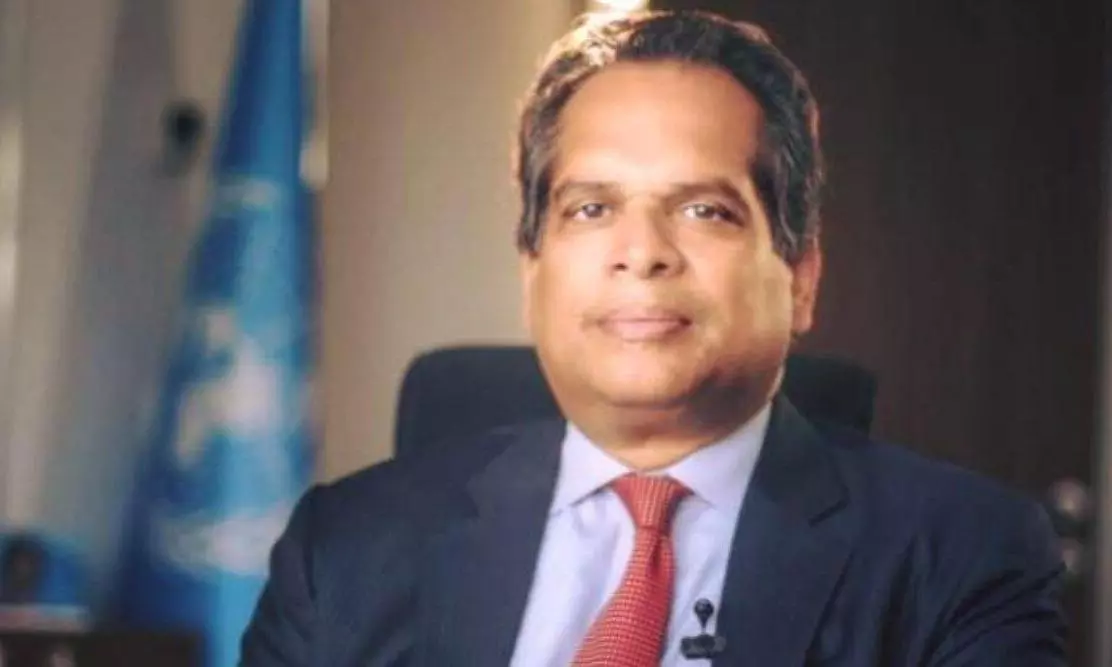
COVID worsens poor and conflict-hit nations' condition in 2021: UN
text_fieldsUN Deputy humanitarian chief, Ramesh Rajasingham/ Image from Facebook
The impoverished and conflict-ridden countries of the world are worse hit by the Covid-19 this year than the last year, the UN security council was warned, reports Associated Press. On Monday, the UN Deputy humanitarian chief, Ramesh Rajasingham, said that such countries are facing higher caseloads and rising deaths. Rajasingham was addressing a closed briefing to the UN Security Council.
Rajasingham cited lack of access to vaccines, relaxed public health measures, increased social mixing and the contagious Delta variant of the virus as the reason for the situation. The Delta variant is believed to be reached at least 124 countries, including 17 fragile and conflict-affected ones.
Rajasingham said that this pandemic is far from over, and the world is at "dangerous periods" for the poorest people on our planet. According to him the pandemic situation into two trajectories- one for the rich world and the other for the poor- based on the differences in vaccine availability, infection rates and the ability to provide policy support.
He also pointed out that this year, almost three-quarters of the nations that require humanitarian aid registered more pandemic cases than in all of 2020. Over one-third of these countries recorded three times more cases or deaths this year compared to 2020. He said that since the testing capabilities of many of these countries are not adequate and the UN could not find the actual scale of the crisis here. The data it has in hand is "just the tip of the iceberg," he said.
He also urged the international community to support these countries by ensuring that they have access to protective equipment, oxygen, testing kits and other critical supplies. To chain the pandemic and its impact on the poorest, the global humanitarian system needs USD 36 billion, which is for 161 million people.
Eighty million vaccine doses have been delivered to countries where the UN sought humanitarian assistance, Rajasingham said. The World Health Organisation (WHO) aims to vaccinate a minimum of 10 per cent of every country's population by September, he said. According to him, to attain that target in countries needing humanitarian assistance, 162 million additional doses are estimated by the UN.
Though vaccines would be available in the second half of 2021 as the UN expects, the timely deliverance of the doses to target countries is also essential. Rajasingham urged international support to recruit and train more health workers and put logistics and security to reach out to people in conflict-affected or remote areas. He added that vaccine doses are useless without effective delivery systems as they have expiry dates.
Rajasingham further said that around half of those countries, for whom the UN appealed humanitarian aid, had administered only less than 50% of the vaccine doses delivered. They face various obstacles like the lack of funding to rollout doses, which South Sudan is facing.
The Security Council meeting was held to discuss the implementation of the resolution that demanded 'sustained humanitarian pause' in conflict areas of the world to provide them vaccines, passed in February this year. The resolution had also demanded equitable and affordable access to Covid-19 vaccines in "armed conflict situations, post-conflict situations and complex humanitarian emergencies."
Rajasingham told the Council that the resolution's objectives were not effectively met, and there is more to do to end this pandemic.























